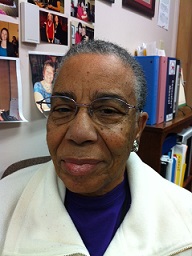
by Ed Schickel
The National Association of the Deaf (NAD) recently sent out an e-blast which contained an announcement about a lawsuit that was pending against a hospital. NAD’s article said the deaf family of a dying cancer patient was not given an interpreter as required by the ADA. The patient herself had to interpret doctors and nurses for the family.
We have to understand that any lawsuit only gives one side of a story. So, we have to be very careful how we interpret the situation. We are not on the jury and will probably never get the full story.
That being said, it is inappropriate and unacceptable for a patient, or family member to have to interpret medical information. A number of years ago, a story said that a 10 year old son, who was interpreting for the parent, had to tell the parent that she had terminal cancer. Again, we don’t know the full truth of the situation. Nevertheless that is inappropriate and unacceptable. That is why the ADA took on the situation and said that doctors and hospitals are responsible for providing interpreters for deaf patients and families. This is equal access. Hospitals in general are trying to comply. At the same time, doctors and hospitals should have available Assistive Listening Devices (ALDs) for Hard of Hearing patients and their families. Shouting at patients to get them to hear and understand is not appropriate.
My brother was in nursing care. While visiting him one day, I could hear the man in the next bed crying. In fact, he was bawling and could not be ignored. I started to talk to him and calmed him. I asked what the matter was. He said his doctor was mad at him. I asked why the doctor was upset. He didn’t know but the doctor was always yelling at him.
In the process of trying to speak loudly, our facial expressions change. We may appear angry when all we are trying to do was to make ourselves understood.
I had a cheap ALD in my car that a vendor had given me. I gave it to the man. The next time I visited he was all smiles. The doctor wasn’t mad at him at all. The nurses who came in the night and didn’t turn on the lights were not trying to hurt him when they attempted to turn him. He could understand them and assist rather than fight out of fear. Most of all, he could understand his family. The man died a week later. But, he was able to understand and people weren’t mad at him.
Incidents like these that have been cited are important examples about the need for compliance with the spirit of the ADA and the needs of the patients and family. Hospitals, doctors, nursing homes, et.al. need to provide appropriately certified interpreters and assistive devices.
That being said, we need to look at the other side of the page. A doctor is notified that a patient is coming in who is deaf. The staff arrange for an interpreter. The insurance will pay the doctor $X for the visit but does not pay for the interpreter. The interpreter is paid $25 to $50 per hour plus mileage and travel time. This can be 2 to 4 times what the doctor is paid for his/her service. Basically, s/he is seeing the patient pro bono. How many patients can be seen, lose the cost of the interpreter and stay in business? Worse, what happens if the patient doesn’t show? The interpreter has to be paid.
Hospitals are in a similar fix. Providing an interpreter for 24 hrs. per day is often a greater cost than their insurance reimbursement. In addition, the availability of interpreters is limited especially in rural communities. Video interpretation is an option but is not the option of choice. It, too, is expensive. Training staff in the use of and keeping assistive devices available on each floor and nurses station is also an issue for hard of hearing patients.
There are no easy answers. There is no real fairness about this issue. There is only what is appropriate and ethical.
What is your opinion? What is your experience? Please share your thoughts…
If you wish to leave a comment about this article and/or share it with a friend, please click the ‘Leave a comment and/or share‘ link below:
Also be sure to visit our website at www.hearinglosskyhome.org


